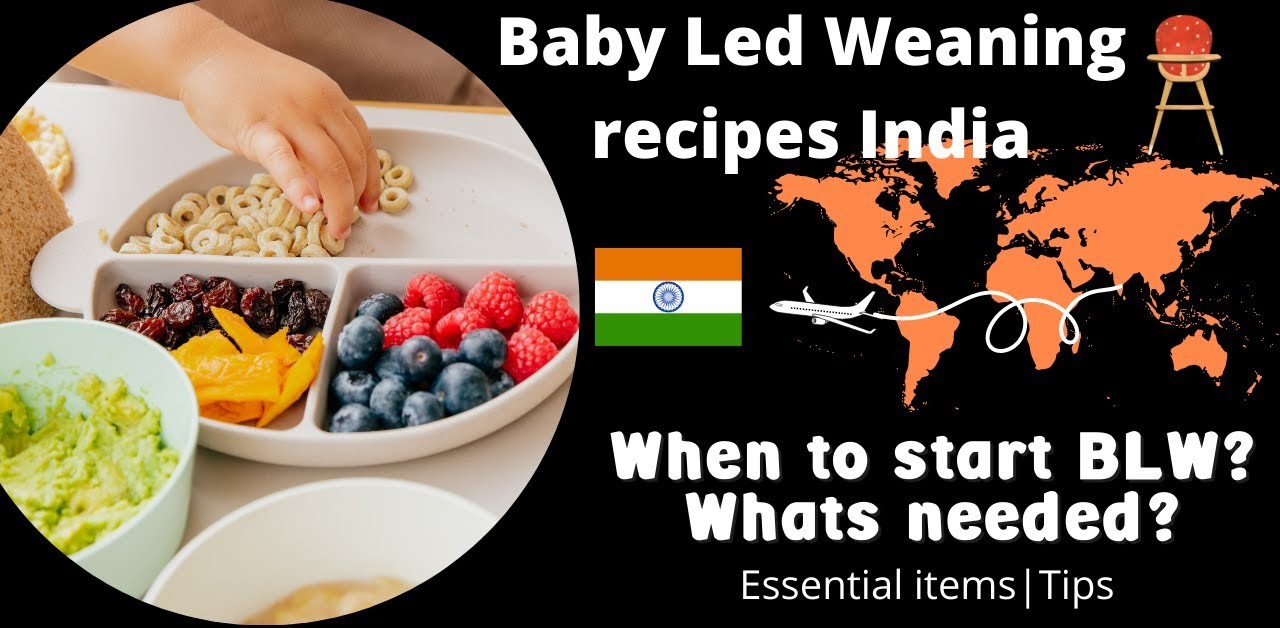
Follow WOWNEWS 24x7 on:

Forget spoon-fed mush and bland purees—Indian parents are embracing a new feeding philosophy that puts babies in charge of their own meals. Baby-led weaning, or BLW, is gaining momentum across urban and semi-urban households, offering a fresh, culturally resonant way to introduce solids. With its roots in developmental science and its heart in traditional Indian kitchens, BLW is reshaping how families think about nutrition, independence, and mealtime bonding.
Here’s a comprehensive guide to baby-led weaning in India, packed with practical tips, cultural context, and expert-backed insights.
What Is Baby-Led Weaning
1. BLW is an approach where babies begin feeding themselves soft, graspable foods from around six months of age
2. Instead of spoon-feeding purees, parents offer finger foods that babies can explore, chew, and swallow independently
3. The method encourages babies to listen to their own hunger and fullness cues, promoting self-regulation and reducing the risk of overeating later in life
Why It Works for Indian Families
1. Indian cuisine naturally lends itself to BLW, with its variety of textures, spices, and soft-cooked staples
2. Foods like idli, khichdi chunks, paneer strips, and soft roti are ideal for tiny hands and developing jaws
3. Mild spices such as turmeric, cumin, and ginger can be safely introduced early, helping babies develop adventurous palates
4. Many Indian grandmothers have long practiced informal versions of BLW, offering soft vegetables or roti to teething infants
Developmental Benefits
1. BLW supports fine motor skills and hand-eye coordination as babies learn to grasp and manipulate food
2. Chewing strengthens jaw muscles, aiding in speech development
3. The act of self-feeding stimulates brain growth through sensory exploration and decision-making
4. Each bite becomes a learning experience, blending nourishment with cognitive development
How to Start Baby-Led Weaning
1. Begin around six months, when the baby can sit upright without support and shows interest in food
2. Offer soft, safe foods like banana chunks, sweet potato wedges, well-cooked rice balls, or chapati strips
3. Avoid honey, whole nuts, and hard foods that pose choking risks
4. Introduce one new food at a time and observe for allergies or sensitivities
5. Continue breastfeeding or formula feeding alongside solids until at least one year
Cultural Adaptation Tips
1. Serve traditional foods in baby-friendly formats—e.g., shape khichdi into finger-sized portions instead of serving it as mush
2. Use family meals as opportunities for babies to observe and mimic eating behaviors
3. Embrace messiness as part of the learning process; mats, bibs, and patience go a long way
4. Encourage grandparents and caregivers to support the method by explaining its benefits and safety guidelines
Common Concerns Addressed
1. Mess: BLW is messy, but it’s also a sign of active learning. Let babies explore textures and flavors freely
2. Nutrition: Babies get most of their nutrients from milk in the first year. Solids are about exploration, not volume
3. Choking: With proper food choices and supervision, choking risks are minimal. Babies have natural gag reflexes that help them learn safely
4. Time: BLW may take longer than spoon-feeding, but it fosters independence and reduces mealtime battles in the long run
Expert Voices
1. Pediatricians and nutritionists increasingly support BLW for its developmental and psychological benefits
2. Riddhi Verma, a child nutrition expert, notes that self-feeding helps babies build lifelong healthy eating habits and body awareness
3. Research shows that BLW can reduce picky eating and promote better food acceptance across cultures
Final Thoughts
Baby-led weaning is more than a feeding method—it’s a philosophy that celebrates autonomy, curiosity, and connection. In India, where food is deeply tied to culture and family, BLW offers a beautiful way to introduce babies to the richness of their culinary heritage while supporting their growth in every sense.
Sources: India Today, Amazon India, Flipkart, Parenting India Digest, Riddhi Verma Pediatric Nutrition Insights August 2025




